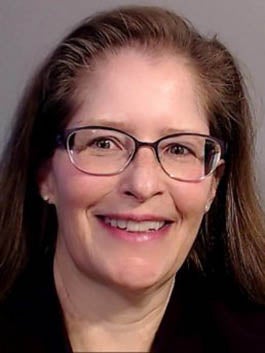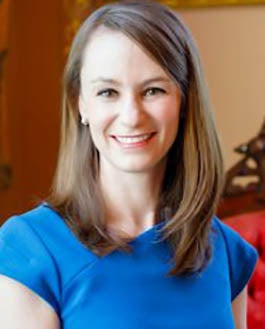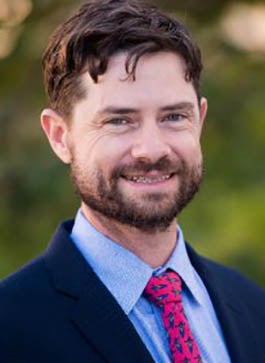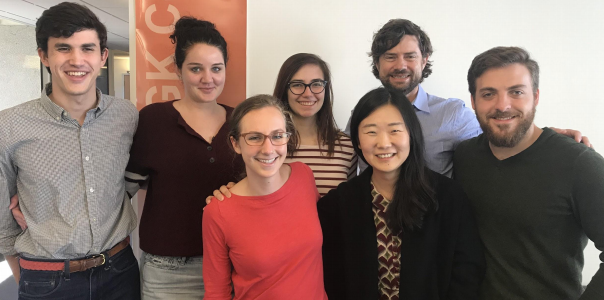The LBJ School of Public Affairs welcomed three distinguished new faculty appointments during the 2020–21 academic year: Dr. Bianca Adair, Resident Intelligence Officer, specializing in intelligence and national security; Dr. Patrick Bixler, an assistant professor focusing on environmental resources, urban policy and sustainability science; and Dr. Sheena Chestnut Greitens, an associate professor whose expertise is East Asia, authoritarian politics and American national security policy.
The exchange below with Patrick Bixler is the first of three conversations with these new professors on their fall 2020 semester.

Dr. Bianca Adair, an officer in the Directorate of Operations at the Central Intelligence Agency, is the Resident Intelligence Officer at the LBJ School from fall 2020 to fall 2022. She has more than 16 years of federal government service in leadership positions in Washington, DC, and foreign field posts. In her nine years at the CIA, Adair has worked in the Middle East, Europe and North Africa on security, counterterrorism and foreign policy, with a special focus on Iran. Previously, she served in Iraq and the United Arab Emirates as a foreign service officer in the U.S. Department of State. The recipient of a Fulbright Research Grant on Austrian-Hungarian Relations and conversant in Persian (Farsi), French, Tajiki, German and Hungarian, Adair holds a Ph.D. in political science from The University of Alabama. She teaches courses on "Intelligence and National Security" as well as "Thinking, Writing, and Briefing for Intelligence."

Dr. Sheena Chestnut Greitens, is an associate professor at the LBJ School with additional roles as a faculty fellow with the Clements Center for National Security and a distinguished scholar with the Strauss Center for International Security and Law. Her position is supported through a Chair established jointly by the Clements Center and the Strauss Center. Greitens's work focuses on East Asia, authoritarian politics and American national security policy, and she serves as a non-resident senior fellow at the Brookings Institution, an adjunct fellow with the Korea Chair at the Center for Strategic and International Studies, an associate in research at the Fairbank Center for Chinese Studies at Harvard University, and a member of the Digital Freedom Forum at the Center for a New American Security.

Dr. Patrick Bixler is a tenure-track assistant professor at The University of Texas at Austin, with the LBJ School serving as his academic home. This interdisciplinary appointment will contribute to the work of Planet Texas 2050, including collaboration with Community and Regional Planning in the School of Architecture and the RGK Center for Philanthropy and Community Service in the LBJ School. Bixler's fields of interest include environmental and natural resources, urban policy and governance, nonprofit and philanthropic studies, network science and sustainability science. He has previously worked for the Texas A&M University Institute for Renewable Natural Resources and Department of Wildlife and Fisheries Science, the University of Oregon Institute for a Sustainable Environment and Environmental Studies, and the Pinchot Institute for Conservation in Washington, DC.

Austin Area Sustainability Indicators (A2SI) initiative. The project won the 2020 Community Project
Impact Award from the Community Indicators Consortium (CIC).
Q: What have you been teaching this fall?
Bixler: For fall 2020, I'm teaching "Program Evaluation for Nonprofit and Social Impact." The course is a mix of philanthropy and program evaluation concepts, statistical techniques for quantitative analysis, and developing technical skills in R. In Spring 2021 I'll be teaching a course on "Mobilizing the Community and Engaging Volunteers" and "Collaborative Governance" — both advanced topics in public management. The "Collaborative Governance" course will be a new one for me, and one I'm very excited about. For fall 2021, I'll add a class on "Sustainable Urban Systems," in addition to my "Program Evaluation" course.
Q: What has surprised or impressed you about the students in your classes?
Bixler: LBJ students never cease to amaze me. Without exception, they are motivated and passionate about learning new skills and applying them. Week in and week out there is great class engagement. I've been surprised at the student interest in learning R for data analysis. I know that I ask a lot of the students because learning R is in addition to all of the course content. That said, everyone is eager to learn these hard skills and frequently ask for more/additional training sessions.
Q: What has it been like to adapt to teaching online? How have you and your students adjusted?
Bixler: Although the online environment will never replace the quality of interactions that occurs in person, it does open up windows of opportunity to do different things. I have been pre-recording some course content so we're not zooming for three hours straight, and that opens up the opportunity for more group work, application of concepts and troubleshooting assignments during class time. The students have adjusted as well as I could possibly hope. What is likely missed most is the informal interactions and conversation prior to class. That is certainly one thing that I miss the most.
Q:What are you looking forward to next semester?
Bixler: I'm looking forward to a new year. 2020 has brought all kinds of generational challenges that we've been taking head on. The question is how can we process, learn from and transform personal practices and institutional systems to "bounce forward" from the multiple crises facing society. I'm excited about the space this creates for personal and intellectual growth, and the opportunities to advance and advocate for institutional change. On a more tangible level, I'm excited to teach some new courses next year ("Collaborative Governance" and "Sustainable Urban Systems," spring and fall 2021 respectively), meet and get to know new students, and launch a new flagship research initiative through Planet Texas 2050 called "Networks for Hazard Preparedness and Response." This project is a close collaboration with Civil, Architectural, and Environmental Engineering and has great potential to expand interdisciplinary environmental research at LBJ.
Q: What else would you like to share?
Bixler: I'm honored and thrilled to continue on at the LBJ School under my new appointment. I'm so fortunate to have such an amazing set of colleagues at LBJ and across UT's campus and working with our students is such a joy. I can't imagine another place I'd rather be doing this work!

